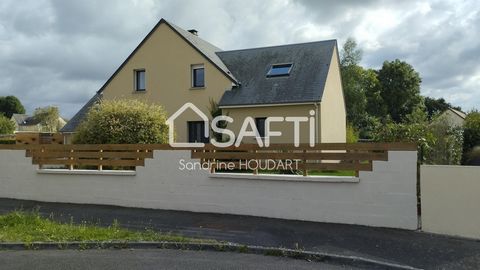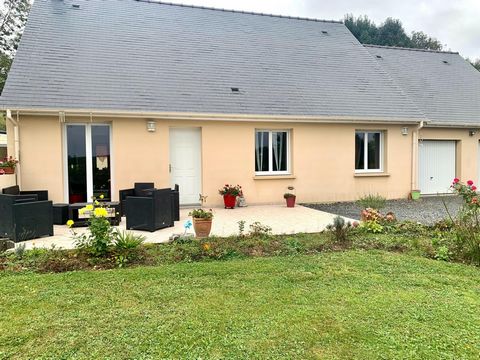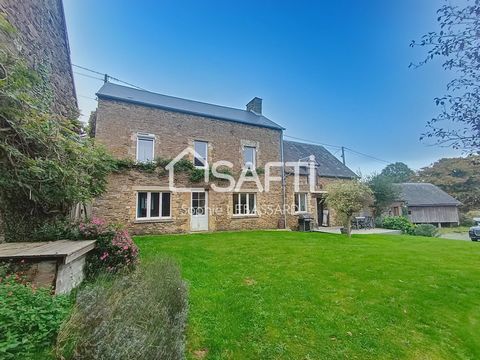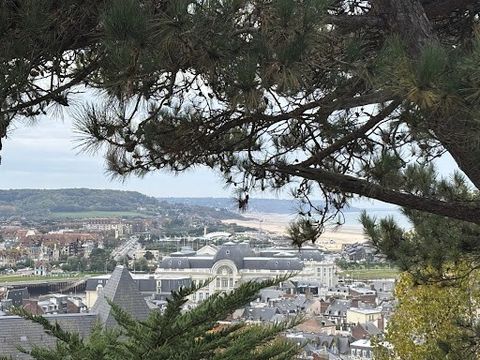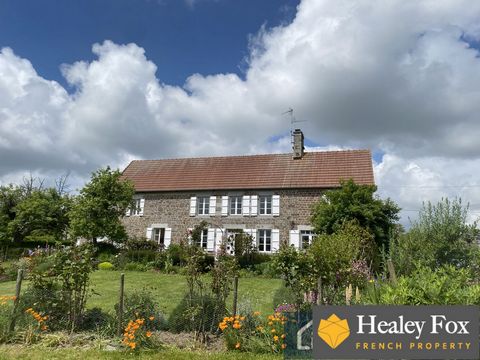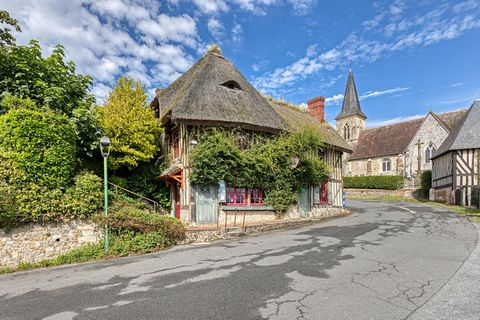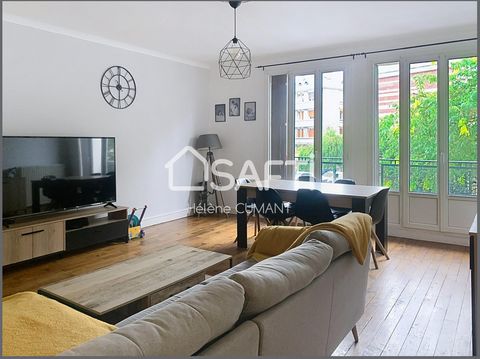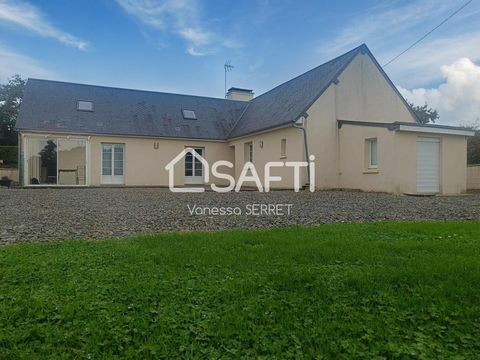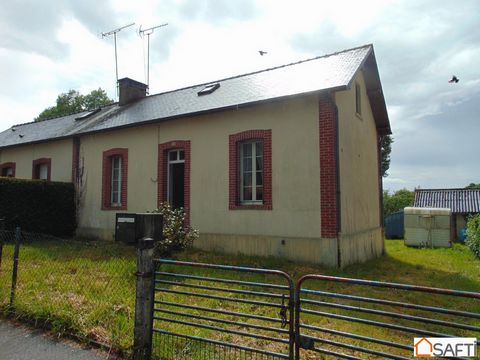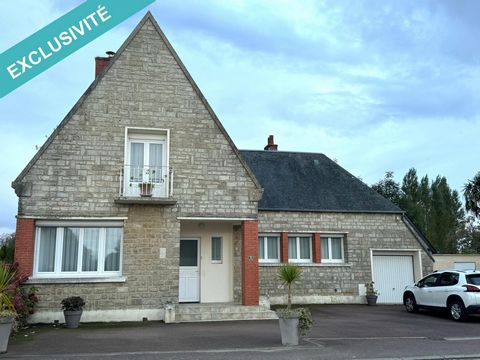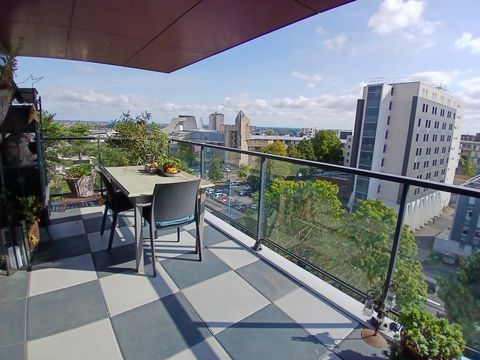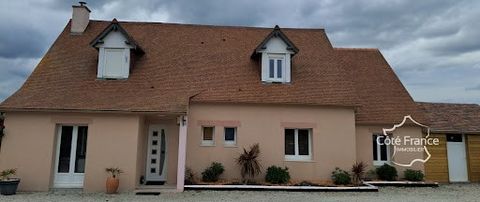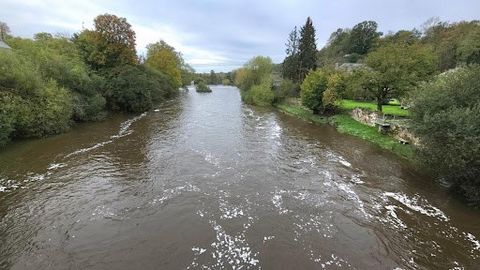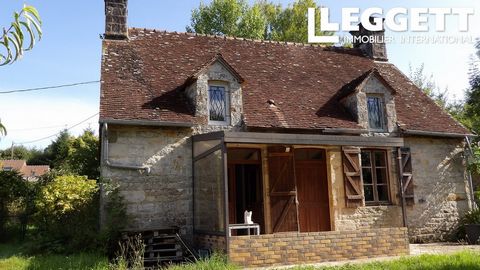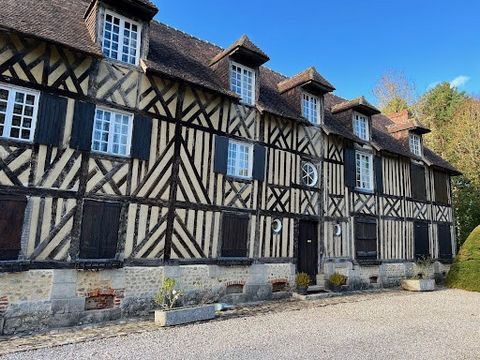Sole agent - REMAINS OF BELLE ÉTOILE ABBEY - ROMANTIC SITE - 18TH C. HOTEL - 15th C. CLOISTER - RUIN OF 13th C. ABBEY CHURCH - IMH - STREAM - 20TH C. COLLECTIVE BUILDINGS. FLERS, NORMANDY. Probable consequence of a wish formulated during a Crusade, the Abbey of Belle-Etoile was founded at the beginning of the 13th century, shortly after the conquest of Normandy by Philippe-Auguste. In the hollow of a valley, along a stream, this abbey with a poetic name and a tumultuous history (looting, English occupation, illegal occupation, lawsuits...) saw 43 abbots pass by in 575 years until its dismantled in 1791. It presents architectural remains of the greatest interest, the ruins of the 13th century abbey church of which the porch and four large arcades of the nave remain, a wing of the 15th century cloister with superb sculpted and emblazoned beams with beautiful sandpits and an original framework bearing inscriptions in Gothic; and a beautiful 18th century hotel with the appearance of a manor house. The grand 18th century hostelry, with a symmetrical facade with seven bays under a large three-sided roof, very neat granite architecture, stone chaining, stone strips highlighting the floors and windows. On the ground floor, a large central four-leaf door, three floor-to-ceiling French windows, openings with segmental arches, the attic decorated with four stone dormers with triangular pediments; three very imposing chimney stacks particularly beautiful and neat. Inside the fittings are mainly from the 19th century, on the ground floor, hall with mosaic floors, wooden staircase with balusters, large 4-leaf door, dining room, wooden fireplace, oak floor with sticks broken, kitchen with full foot access, service staircase. Large living room, neo-Gothic fireplace, low panelling, ceiling with beams and joists, herringbone floor. On the first floor, 5 bedrooms, including 4 with fireplace, part without floor, 19th century fittings. Secondary staircase leading to the second floor. On the second floor, 7 bedrooms, two of which have a fireplace. The 15th century cloister wing, begun according to the texts in 1496 but which seems to be about a century older, has a superb facade of eight sublime molded ogival arcades alternated with buttresses, forming a covered gallery of about 30 meters. On the first floor, the windows are adorned with a brace, an upstairs door suggests an exterior wooden passageway, the flat tiled roof was redone about 30 years ago and wooden parts restored to the best manner. Inside the cloister, the gallery is adorned with a very beautiful floor of stone slabs, as well as sumptuous and extremely rare molded and emblazoned beams, in particular the arms of the Dauphins of France, a rare state of conservation of the wooden elements of the 15th century, sandpits and tie-beams forming a fully molded whole along the entire length. Coussiège windows upstairs. Extremely rare remains of the 13th century abbey church, 4 large ogival arcades, pillars with richly molded bases, rib vault departures, triglyphs, multi-lobed columns, superb molded porch, remains of bays, sculpted faces. Stone shed-workshop in good condition, fiber cement roof Large community courtyard in concrete with large bay windows, metal sheet roof. A large community building on the ground floor. Very pretty stream at the bottom of the park, terrace overlooking the whole, very beautiful century-old oak. The remains of the abbey are listed as Historic Monuments. Many scattered stone remains. 1.1 hectare park. Situation, - 8km from Flers, all shops and services, train station, Paris 2h10 by train. - 63km from Caen. - 90km from the sea, Luc-sur-Mer, Cabourg. - 240km from Paris, 3h. Origin according to the tradition of the name of Belle-Etoile: 'The Sire of Cerisy, Henri de Beaufou, had gone to the Crusade, leaving at home his wife, Edicie de Romilly, whose family was attached to that of the Dukes. Several years passed without any message reassuring Edicie about the fate of her husband. She sometimes went to take her dreamy sadness to the edge of the woods, near a spring called the Fairy Fountain, because the fairies came there, it was said, to dance in the pale rays of the moon. It was perhaps one of those sacred springs so dear to our ancestors the Gauls. Perhaps also the great oaks, which rose on its banks, had seen the Druids accomplishing their mysteries there. Anyway, one spring morning, Edicie, seated near the transparent wave, addressed an ardent prayer to God for the return of the absent one. Suddenly it seemed to him that a bright light shimmered on the surface of the water. It was doubtless the reflected image of a star which shone in the depths of the firmament. But for the supplicant, it was salvation! And in fact, soon Henri de Beaufou was back. Escaped from the thousand perils of a very long journey, he could finally press his wife to his heart. At the height of joy, he wanted to give the nascent abbey the name of BELLE-ÉTOILE, in memory of the miraculous star. » Note on History: - 1216, foundation, rich endowment by a lord close to the King of England. - 1238, abbey church. - Cloister started in 1496. - Looted by the reformed 2nd half of the 16th century - Report of the parliament of Normandy ordering it to be raised from its ruins in 1600 - 1620, The Calvinists are driven out. - 1630, the Premonstratensians arrive and restore order in the functioning of the abbey. - 1791, dismantling, part of the library is in the departmental archives, the place becomes an industrial site 'for the factory of rose cup, alum, vitriolic acid, soap, cotton fabrics of all kinds'. - 1818, the vaults of the abbey are reported to have fallen. - 1841, the industrial exploitation is announced stopped. Price: 500,000 Euros agency fees included, fees payable by the seller. For sale exclusively at Denniel Immobilier - Antique dealers in buildings Information on the risks to which this property is exposed is available on the Géorisques website: ...
